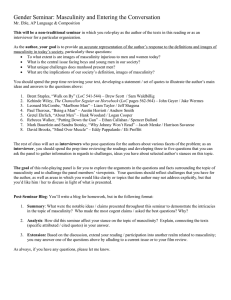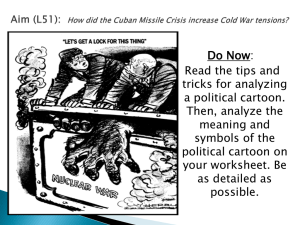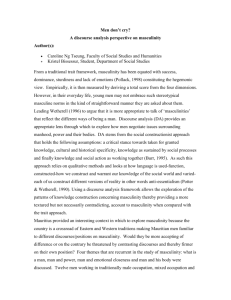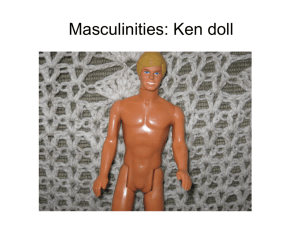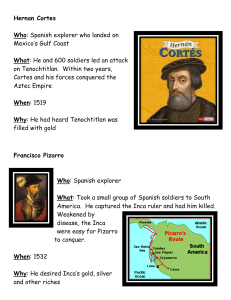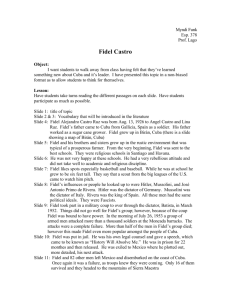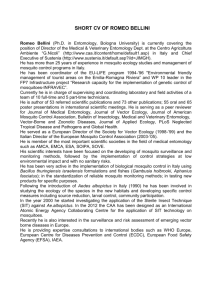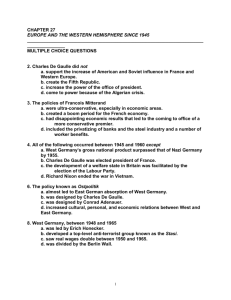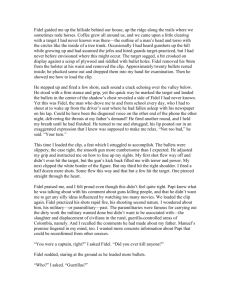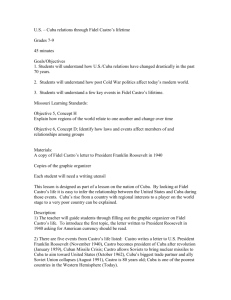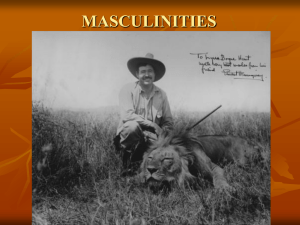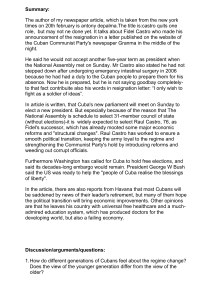2013-14 Brown Bag Schedule Fall Semester 2013 9/19 – Burnie
advertisement
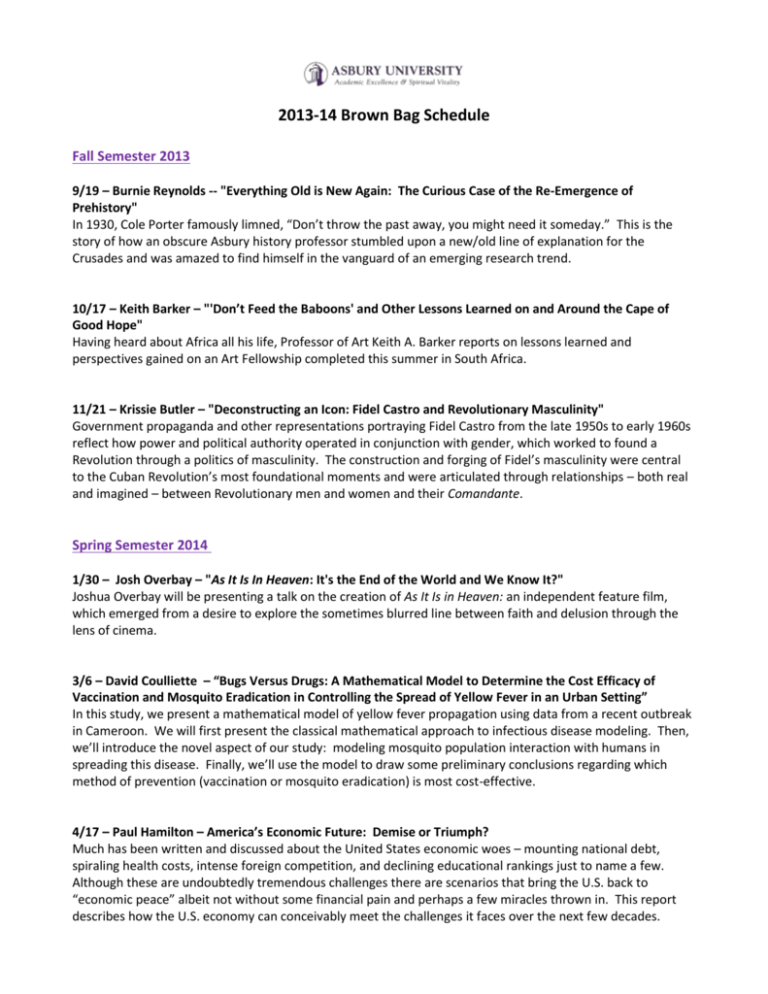
2013-14 Brown Bag Schedule Fall Semester 2013 9/19 – Burnie Reynolds -- "Everything Old is New Again: The Curious Case of the Re-Emergence of Prehistory" In 1930, Cole Porter famously limned, “Don’t throw the past away, you might need it someday.” This is the story of how an obscure Asbury history professor stumbled upon a new/old line of explanation for the Crusades and was amazed to find himself in the vanguard of an emerging research trend. 10/17 – Keith Barker – "'Don’t Feed the Baboons' and Other Lessons Learned on and Around the Cape of Good Hope" Having heard about Africa all his life, Professor of Art Keith A. Barker reports on lessons learned and perspectives gained on an Art Fellowship completed this summer in South Africa. 11/21 – Krissie Butler – "Deconstructing an Icon: Fidel Castro and Revolutionary Masculinity" Government propaganda and other representations portraying Fidel Castro from the late 1950s to early 1960s reflect how power and political authority operated in conjunction with gender, which worked to found a Revolution through a politics of masculinity. The construction and forging of Fidel’s masculinity were central to the Cuban Revolution’s most foundational moments and were articulated through relationships – both real and imagined – between Revolutionary men and women and their Comandante. Spring Semester 2014 1/30 – Josh Overbay – "As It Is In Heaven: It's the End of the World and We Know It?" Joshua Overbay will be presenting a talk on the creation of As It Is in Heaven: an independent feature film, which emerged from a desire to explore the sometimes blurred line between faith and delusion through the lens of cinema. 3/6 – David Coulliette – “Bugs Versus Drugs: A Mathematical Model to Determine the Cost Efficacy of Vaccination and Mosquito Eradication in Controlling the Spread of Yellow Fever in an Urban Setting” In this study, we present a mathematical model of yellow fever propagation using data from a recent outbreak in Cameroon. We will first present the classical mathematical approach to infectious disease modeling. Then, we’ll introduce the novel aspect of our study: modeling mosquito population interaction with humans in spreading this disease. Finally, we’ll use the model to draw some preliminary conclusions regarding which method of prevention (vaccination or mosquito eradication) is most cost-effective. 4/17 – Paul Hamilton – America’s Economic Future: Demise or Triumph? Much has been written and discussed about the United States economic woes – mounting national debt, spiraling health costs, intense foreign competition, and declining educational rankings just to name a few. Although these are undoubtedly tremendous challenges there are scenarios that bring the U.S. back to “economic peace” albeit not without some financial pain and perhaps a few miracles thrown in. This report describes how the U.S. economy can conceivably meet the challenges it faces over the next few decades.
